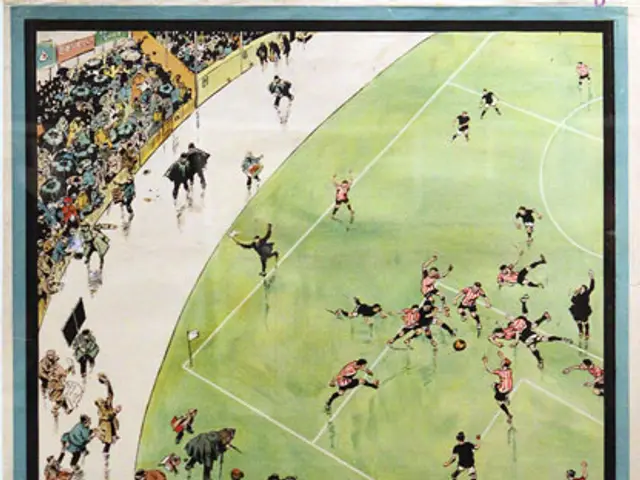The Astounding Account of Tadeusz Pietrzykowski, a Polish Man who Endured Auschwitz Through Boxing Victories
Tadeusz 'Teddy' Pietrzykowski, born on April 8, 1917, in Warsaw, Poland, was a 23-year-old Polish man who found himself one of the first prisoners taken to Auschwitz-Birkenau concentration camp by the Nazis.
Pietrzykowski was a bantamweight vice-champion of Poland and a champion of Warsaw, known for his formidable fighting skills, technical skill, sharp footwork, and grit. However, the harsh realities of the concentration camp life were about to test these qualities in ways he could never have imagined.
In Auschwitz, Pietrzykowski faced terrible odds, where more than a million people would perish between 1940 and 1945. Despite the dire circumstances, he found a unique way to survive—boxing.
His first fight was against Walter Düning, a German kapo who had been a successful boxer before the war. Against all odds, Pietrzykowski outmaneuvered Düning and claimed victory, realising that boxing could secure him special privileges at Auschwitz.
Pietrzykowski continued to box for his survival, engaging in between 40 and 60 matches, purportedly only losing just one of them. His victories not only provided him with extra food and better living conditions but also became a source of hope for his fellow prisoners.
In 1943, Pietrzykowski was transferred from Auschwitz to Neuengamme concentration camp near Hamburg, where he continued to fight in matches organized by the guards, around 20 in total.
During his time at Bergen-Belsen, Pietrzykowski's body was ravaged by years of imprisonment, but his will remained unbroken. Despite the harsh conditions, he survived and was eventually liberated in April 1945.
After the liberation, Pietrzykowski returned home to Poland and became a boxing trainer and physical education teacher in Bielsko-Biała. Before his death in 1991 at the age of 74, he often repeated a simple message to his students: 'To be is to be the best.'
Despite his boxing career being interrupted by the war and his weakened health, Pietrzykowski's story is a testament to the human spirit's resilience and the power of sport to provide hope in the darkest of times.
Read also:
- United States tariffs pose a threat to India, necessitating the recruitment of adept negotiators or strategists, similar to those who had influenced Trump's decisions.
- Weekly happenings in the German Federal Parliament (Bundestag)
- Southwest region's most popular posts, accompanied by an inquiry:
- Discussion between Putin and Trump in Alaska could potentially overshadow Ukraine's concerns







